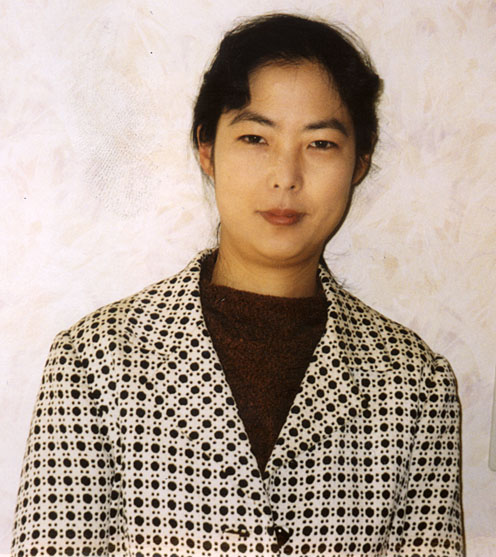|
Web Exclusives: Alumni Spotlight
January 29, 2003 : Trials of a Japanese returnee Ryoko Tsuneyoshi *90 uses her experience to forge academic career As a young "returnee" to Japan in the 1970s, Ryoko Tsuneyoshi *90 endured intense pressure to conform. Born in Baltimore and raised in Western Massachusetts, where her parents were professors, Tsuneyoshi went back to Japan with her family when she was 11. There, she confronted a society that demanded a strong sense of national identity of its citizens, one that challenged her own sense of identity. In her new home, she, like others of Japanese descent who had relocated to the island nation, was not considered "Japanese" enough to suit rigid social norms. At a school for returnees, she studied the Japanese language and other subjects that would allow her to adapt to the dominant culture. "I grew up in the United States. Part of my personality was developed there," said Tsuneyoshi during an interview last winter at the University of Tokyo, where she is an associate professor in the graduate school of education. "My experience [in the U.S.] was closer to that of second-generation Japanese-Americans." But when her father was offered a job in his native country, the family left the U.S. Tsuneyoshi's experience has "helped me look at Japan from a relative and comparative perspective. I had had a different experience [than Japanese people raised in Japan] until then. I [related] more to the returnees." Her background has uniquely suited Tsuneyoshi for her career as a specialist in comparative education and education reforms. Tsuneyoshi, who left Japan to earn a Ph.D. in sociology in 1990, compared the formation of children's behavior patterns in American and Japanese elementary schools for her dissertation. And she relied in part on fieldwork in the Princeton public school system. Tsuneyoshi has since expanded her work in that field, and her book, The Japanese Model of Schooling: Comparisons with the United States, published by RoutledgeFalmer in 2001, appears on numerous syllabi on campuses across the U.S. Despite obvious differences, the social issues that influence the two countries' education systems have much in common, Tsuneyoshi concludes. Both countries, for example, are continually grappling with whether to emphasize a "back-to-basics" approach or a curriculum that concentrates on values and problem solving. "The great irony," she writes, "is that each country's initiatives for educational reform often promote goals already met by the other country's model, (which, in turn, it ironically often regards as inadequate.)" As a consultant to Kawaskaki and other municipalities in Japan, Tsuneyoshi is also committed to devising tactics for recognizing and tolerating diversity inside and outside the classroom with an approach she calls "international understanding education." As Japan experiences social and economic upheaval, Tsuneyoshi's goals are presciently on target. "My focus is on socialization," she says. "Japan is facing lots of problems with this it didn't not see before." More refugees have entered the country, as have Latin American immigrants of Japanese descent. Continuing issues surrounding the country's Korean and Chinese populations, as well as the Okinawans and the Ainu of northern Japan, are also forcing new ways of thinking in Japan. "Japan is in the process of discovering the hyphenated Japanese," as in Brazilian-Japanese or Korean-Japanese, Tsuneyoshi says. Certain social shifts are working in Tsuneyoshi's favor. For example, she says Japanese citizens are becoming less dependent on the government to effect change. So-called "non-government groups" are taking it upon themselves to help solve local problems, she says. The new sense of autonomy is helping Japanese society as a whole become less rigid in its attitudes toward ethnic minorities, foreign nationals, and immigrants, Tsuneyoshi says. And yet, many of Japan's foreigners continue to live in "invisible spheres," served by their own churches, food stores, and other institutions. That Japan is also caught up in a debate about vanishing morals, child-rearing techniques, and increasing crime complicates the diversity conversation, she says. Efforts to de-emphasize Japan's traditional stress on group identity
through class discussions, introducing new languages, and other
tactics can only help the country deal with these internal issues,
says Tsuneyoshi, the mother of a young girl. By becoming more open
to difference, international understanding education will also enable
the country to remain vital and significant on a global level as
well, she says. By Stephanie Shapiro Stephanie Shapiro is a writer for the Baltimore Sun.
HOME
|
||

